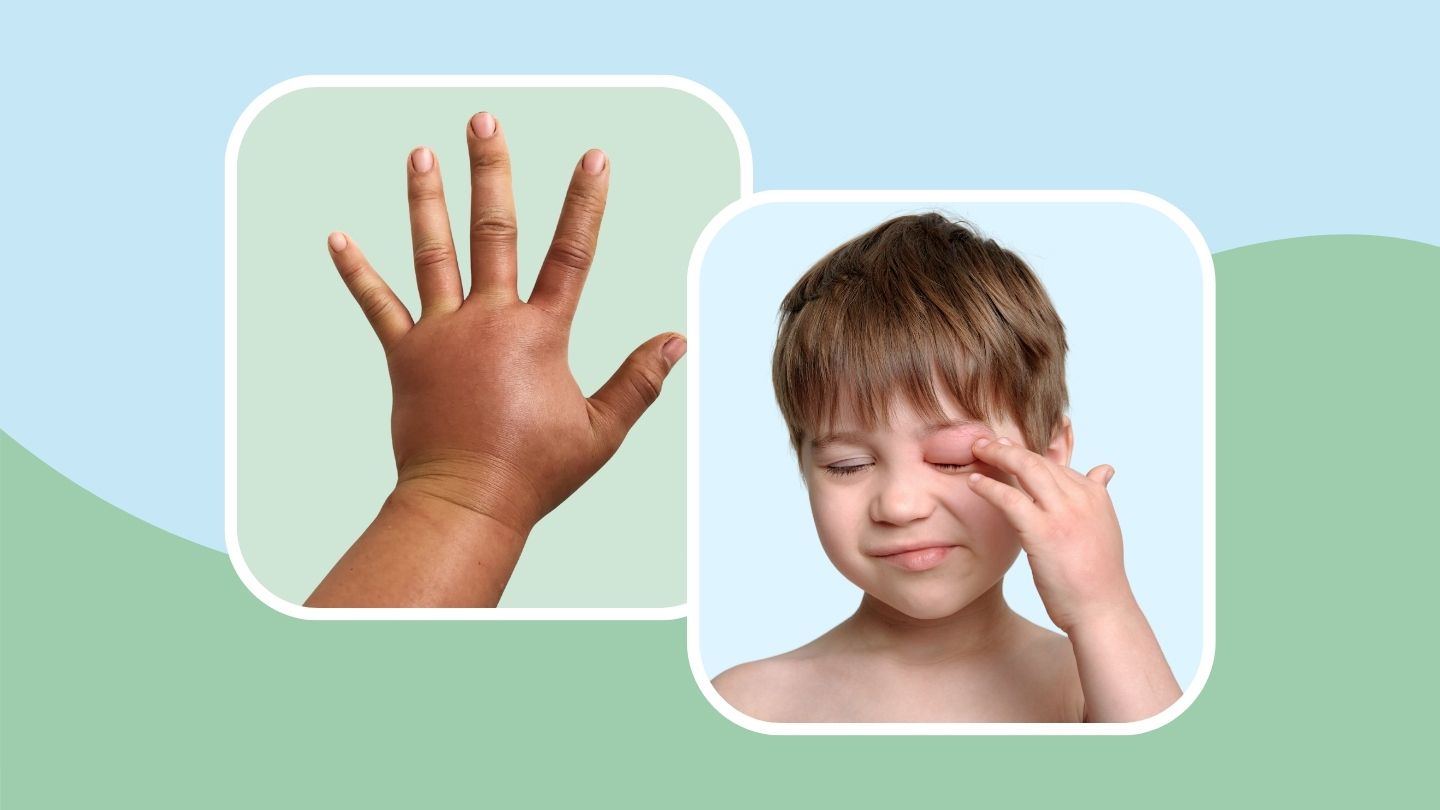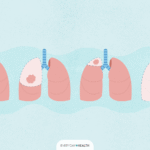Symptoms vary and depend on the type of HAE you have and, thus, the types of attacks you experience. For example, some people with HAE may primarily experience swelling in their hands and feet, whereas others may experience abdominal swelling that can cause pain, nausea, vomiting, and diarrhea. When experiencing an attack, swelling can also start in one area of the body and spread to another.
An HAE attack can look and behave differently based on the body part affected.
1. Face
Swelling of the face, particularly the lips and the area surrounding the eyes, is one of the most obvious signs of an HAE attack.
If your eyes swell up, it might be hard to see. Inflamed lips can make tasks such as talking, eating, and drinking difficult. In some cases, your entire face may appear disfigured. Luckily, the swelling is temporary and will subside when the attack is over. But if you have face swelling along with symptoms in your mouth or throat, such as coughing or trouble swallowing or breathing, it can be a sign of a more serious attack that requires emergency medical help.
2. Hands
During an HAE attack, your hands may appear much larger than normal, and your fingers may curl in. Swollen hands make it difficult to perform daily tasks such as writing, eating, or holding a phone.
You may need to take a break from some regular activities and find workarounds to limit pain. For example, try using voice-to-text technology rather than texting normally, or drinking smoothies through a straw rather than eating a meal that requires more reliance on your hands. Your doctor may suggest applying ice packs or cool compresses to your hands to help alleviate some pain and swelling.
3. Feet
Swelling in the feet is another common sign of an HAE attack. Swollen feet can be painful and interfere with walking and other daily activities. You may not be able to get your shoes on your feet during the attack, and you may have to take time off from work or work from home. Ice packs or cool compresses may also be useful to help reduce pain and swelling.
4. Genitals
The buttocks, perineum (the area between the anus and genitals), vagina, vulva, penis, or scrotum can swell during an HAE attack. Applying an ice pack to the swollen area may provide some relief.
Genital swelling can be painful and interfere with sexual activity and the ability to urinate. Some research indicates that intercourse may even trigger an HAE attack.
5. Abdomen
It is not uncommon for the intestinal walls to swell during an HAE attack, causing a bloated appearance. Intestinal swelling can also cause extreme pain, nausea, vomiting, diarrhea, and dehydration. When swelling is present in the intestinal walls, stick to food that is easy on the digestive system, such as white rice, white bread, clear broths, eggs, and chicken or turkey.
6. Larynx
The larynx is the part of the throat used for breathing, talking, and swallowing, and it can also swell during an HAE attack. This is the most dangerous type of swelling because it can make it difficult or impossible to breathe. Research suggests that half of people with HAE will experience this type of attack in their lifetime. Without treatment, the risk of death from a laryngeal attack can be as high as 30 percent. If you experience swelling in your throat, seek emergency medical help right away.
In some cases, your doctor may use a special camera to see exactly how the swelling is obstructing your throat. Then, your doctor will likely administer medication to reduce swelling and reopen your airway.
7. Skin
About 25 percent of people with HAE experience a non-itchy, blotchy red rash with wavy edges before or during an attack, known as erythema marginatum. This rash can also appear as red circles, similar to hives. In fact, one study that examined 87 people with HAE found that half of them had experienced erythema marginatum being mistaken for hives.
A skin rash associated with HAE generally lasts a few hours to a few days, and there is currently no treatment for it; it fades with time.
The Takeaway
- Hereditary angioedema (HAE) attacks can cause extreme swelling of different parts of the body, including the face, extremities, genitals, intestines, and more.
- Proper diagnosis and treatment of HAE is crucial, as the condition can be serious and, in some cases, life-threatening.
- In some cases, HAE attacks can cause swelling in the larynx, the part of the throat used for breathing and swallowing, which can be a medical emergency that requires immediate medical attention.
Read the full article here




